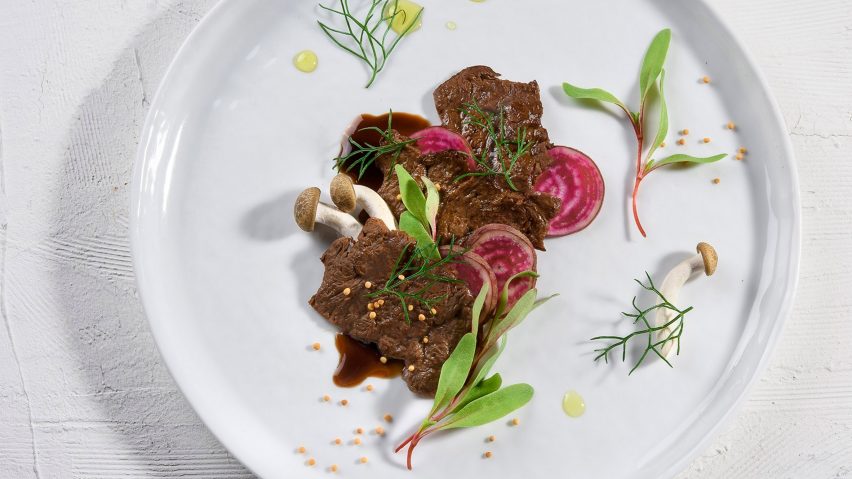The first steak grown in a laboratory from cow cells as a meat alternative has been developed in Israel, and claims to have a texture and flavour similar to conventional meat.
Described as the world's first slaughter-free steak, the product, which is still in its prototype phase, is made of four different types of cow cells that have been engineered to replicate the shape, texture and flavour of beef.
Scientists at food-tech startup Aleph Farms extracted the cells from a living cow, before nourishing them to interact with each other and multiply as they would inside an animal. The intention was to replicate a structure similar to muscle tissue.
The steak was manufactured in collaboration with Technion Israel Institute of Technology using a variety of cell types extracted from the cow – support cells, fat cells, blood vessel cells and muscle cells – which grow on a scaffold in a controlled setting.
The aim was to offer an alternative to a traditional steak that is not only slaughter-free, but also sustainable.
A number of scientific studies have pointed to a reduction in meat-eating as essential to lessening the effects of greenhouse gas emissions and climate change. One study found that avoiding meat and dairy products is the "single biggest way" to reduce people's environmental impact on the world.
Lab-grown steak has meaty appearance
The lab-grown steak is five millimetres thick. It has the same meaty appearance and muscle-like texture of a conventional beef steak without the need for the acres of land, water, feed, and other resources necessary to raise cattle for meat.
According to the company, each of the thinly-sliced steak prototypes took between two and three weeks to produce and cost $50 (approximately £40) – a significant decrease in price from the first lab-grown burger in 2013, which cost scientists £225,000 to produce.
While other companies are also working on the creation of artificial meat from beef, chicken, duck and pork cells in laboratories, these tend to be processed items such as sausages, burgers and nuggets.
"We're shaping the future of the meat industry, literally," said Didier Toubia, co-founder and CEO of Aleph Farms. "Making a patty or a sausage from cells cultured outside the animal is challenging enough, imagine how difficult it is to create a whole-muscle steak."
"At Aleph Farms, this is not science fiction. We've transformed the vision into reality by growing a steak under controlled conditions," he continued.
"The initial products are still relatively thin, but the technology we developed marks a great leap forward in producing a cell-grown steak."
Slaughter-free steak to go on sale in three years
There are currently no lab-grown meat products on sale commercially, although there are some companies that have announced plans to supply meat to restaurants by the end of this year. Aleph Farms intends to sell its lab-grown steak commercially in three to four years.
An increasing number of researchers are turning to science to develop cruelty-free alternatives to meat, including a 3D-printed meat-free steak made from vegetable proteins, and hotdogs made from carrots and algae.

